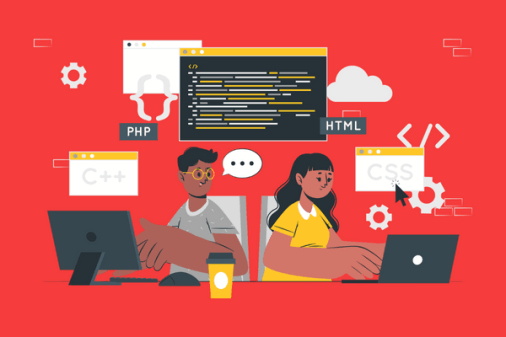
June 4, 2022
If you are someone who has been exploring coding bootcamps in India recently or someone who is wanting to learn to code, then you might have heard about this new “method of payment” called Income Sharing Agreement (ISA). ISA is a relatively new concept in India. If you haven’t, then let me introduce you to it.

So let’s assume you want to enroll in a coding Bootcamp in company X (an ed-tech platform that teaches coding/design…).
Company X tells you that you don’t have to pay any upfront fee for the course. Instead, you enroll in the course, sign the agreement, and once you get a job (with a salary above a threshold), you pay them for x years. Company X will even help you in getting a job through referrals.
For broke college students, “ISA saves the day!” keeps ringing in their ears. It seems to be the perfect solution for them and incredibly better than student loans as there is 0% interest (seemingly) and they only expect you to pay back when you’ve landed a job. Sounds too good to be true, isn’t it?
Now consider a hypothetical scenario:
Let’s say I’m teaching a course on web development for 20K. But, instead of charging 20K upfront, I ask you to pay me 4 Lakh rupees once you get placed. Does that sound lucrative?
It’s important to note that these ISA documents are carefully drafted by lawyers, with a myriad of terms and conditions, which frankly are not gonna help you. These clauses that are in the agreement are not your friends, they may seem reasonable to begin with, but as you graduate in your career, you’ll realize that you’re giving away an unfair chunk of your hard-earned salary. No matter promotions, incentives, or bonuses, you’ll still be paying the same percentage of your income for years to come.
You should always consult a lawyer when referring to such documents.
The amount of money you need to be making before you start paying.
This is the amount of your income that you'll share with the school after you've finished the school and have work paying above the threshold. This might say "a job in tech" but that is hard to determine. Answering phones at a bank might be a job in tech. The percent is usually before taxes. There are lots of details to consider. It's also hard for people to understand that it's variable. If you make a little you pay a little. If you make a lot you'll pay a lot. but see the 'cap.
This would be for how many months you'll pay that percentage. That means that for 12 months, 24 months, 36 months, (or more) you would pay that percentage of your paycheck.
The maximum amount of money you have to pay. You would never pay more than that.
1. How much (absolute) money are you paying for this course? 5 times the market rate? 10 times? 20 times?
2. What If you don’t get the job via Company ABC’s referrals?
3. What if you secure a job by yourself? Do you still need to pay Company ABC?
Look, not all ISAs are predatory. But a lot of them are. They take advantage of perhaps the biggest human emotion - Fear.
Students and freshers are scared about their future, of securing a job. But you can secure a job, and build your career. Utilize all the free resources you have, learn how to use the tools, and build projects.
Regarding referrals. You can connect with recruiters/employers via LinkedIn. Don’t just cold message them. Talk about your work, their company's work, and how you can help them.
I hope that helps. Have a lawyer look at the ISA way before you sign it.